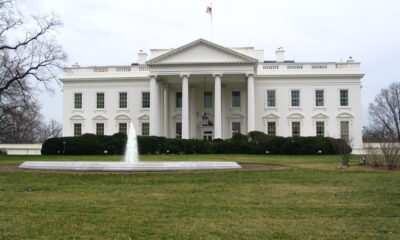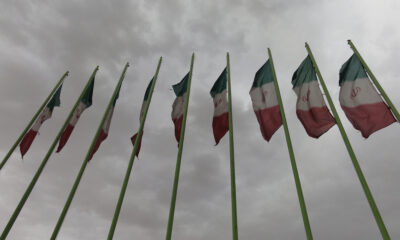Civilization
Antisemitism, Multiculturalism, and Barbarism
Antisemitism is only part of the problem of apologizing for atrocity. Multiculturalism compounds the problem.

The enormity of Hamas’ 10/7 mass atrocities breaks the heart and scorches the mind. Or so a person of ordinary human decency would think.
In a few hours and under the cover of thousands of rockets fired into Israel from the Gaza Strip, the jihadists targeted civilians – slaughtering close to 1,200, kidnapping around 240, raping women and mutilating corpses, and wounding thousands more while reveling online in their sadistic brutality. No grievance can justify such heinous crimes against humanity. Yet students and faculty at several of the nation’s leading colleges and universities expressed enthusiasm for, and demonstrated solidarity with, the jihadists and their barbarism. The scandalous spectacle thousands of miles from Israel and Gaza defies easy explanation.
Antisemitism provides a partial answer. Appreciation of how the academic doctrine of multiculturalism and its progeny – identity politics, intersectionality, and the diversity, equity, and inclusion industry – undercut individual rights and equality under law refines the account and clarifies the threat.
One needn’t deny or disparage the rights of Israelis to uphold those of Palestinians. But the two most prominent pro-Palestinian organizations operating on American campuses promote antisemitism by effectively denying the Jewish people’s right to national self-determination.
In the mid-2000s, Palestinians established the Boycott, Divestment, Sanctions movement. They said it was devoted to “freedom, justice, and equality.” But to secure Palestinian rights, BDS sought to make Israel a pariah among nations. Isolating Jerusalem diplomatically and crippling Israel economically, BDS hoped to enable the several generations of descendants of the roughly 700,000 Palestinians who were displaced by the 1948 war – five Arab armies invaded the fledgling Jewish state with the intention of annihilating it – to take up residence in Israel.
Seventy-five years later, BDS espouses for some 5 million Palestinians a supposed “right of return.” Such a right is without parallel in international law. Under international law everywhere else on the planet, only those who have themselves “fled war, violence, conflict or persecution and have crossed an international border to find safety in another country” qualify as refugees. And everywhere else around the world, once a decent effort has been made at repatriation, international organizations typically seek to resettle refugees rather than perpetuate their condition for generations. If even a fraction of those anomalously treated as Palestinian refugees exercised the fanciful “right to return,” it would transform the nation-state of the Jewish people into the world’s 23rd Arab state.
Students for Justice in Palestine endorses BDS. SJP also couches its mission in comforting abstractions – “freedom, solidarity, equality, safety, and historical justice” to conceal the sinister meaning of its declared objective. “Palestinian liberation” as understood by SJP differs dramatically from the quest for a Palestinian state, which in principle is compatible with a free and sovereign Jewish state. For SJP, as for BDS, Palestinian liberation requires freeing the land between the Jordan River and the Mediterranean Sea from Jewish self-rule.
Antisemitism, however, goes only so far in explaining the alarming number of students – and professors – who leapt at the opportunity to offer excuses for Hamas – starting with the slander that Israel is guilty in Gaza of occupation, colonialism, and apartheid. Antisemitism, for example, does not account for the Hamas apologists’ feeble grasp of, or stunning indifference to, the facts. It does not explain why progressive champions of identity politics, LGBQT+, and climate change embrace Hamas’ cause, which is Israel’s destruction. And it sheds little light on why BDS and SJP link their efforts to terminate Jewish sovereignty in Israel to the left’s multicultural agenda.
Indeed, BDS and SJP highlight their progressive and multicultural credentials. According to BDS’s National Committee, “We stand in solidarity with people of African descent, indigenous peoples, landless people, refugees and migrants, people exploited and oppressed for the economic advancement of a few, and those discriminated against and persecuted for their beliefs or identity, including caste. We stand with their respective struggles for racial, economic, gender, environmental and social justice.” SJP similarly declares, “We believe the struggle for a free Palestine is also the struggle for Black liberation, gender and sexual freedom, and a livable and sustainable planet. All pursuits for freedom, justice, and equality are materially connected and require us to struggle against state violence, colonialism, capitalism, and imperialism, in all their forms.”
BDS’s and SJP’s embrace of the progressive multicultural agenda is revealing. It is also misleading because multiculturalism is poorly understood.
Lulled into complacency by its anodyne name, many confuse multiculturalism, which sounds good in theory, with pluralism and toleration. Pluralism refers to the many faiths, ethnicities, and conceptions of happiness, flourishing, and justice in liberal democracies such as the United States. The virtue of toleration makes pluralism possible; it is exercised in living peacefully alongside people whose opinions and ways of life differ from one’s own. In contrast to pluralism and toleration, which enable many groups to unite as a single nation, the multiculturalism manufactured in the academy breaks down one nation into many groups and embitters their relations.
According to the Stanford Encyclopedia of Philosophy, multiculturalism not only describes diversity in political life but also advances “a normative ideal in the context of Western liberal democratic societies.” The multicultural ideal repudiates “the ideal of the ‘melting pot’ in which members of minority groups are expected to assimilate into the dominant culture” in favor of “an ideal in which members of minority groups can maintain their distinctive collective identities and practices.”
If that were the end of the matter, multiculturalism would be compatible with American constitutional government. The pluralism that the United States tolerates and even welcomes is capacious enough to include minority groups who, rather than assimilate into mainstream culture, prefer to maintain their distinctive collective identities and practices. To enjoy this freedom amid diversity, however, minority group members must respect individual rights, obey the law, and support themselves, their families, and their communities.
Multiculturalism rejects these traditional terms of American citizenship. Instead, states the encyclopedia, multiculturalism holds that “it is ‘culture’ and ‘cultural groups’ that are to be recognized and accommodated.” In case of a clash, multiculturalism teaches, individual rights and generally applicable law must give way to culture and group identity.
The multicultural repudiation of liberal democracy in America has been a long time in the making. In the mid-1990s, in “The Real Clash,” then-Swarthmore College professor James Kurth (with whom I studied as an undergraduate and who is now emeritus) took the occasion of an assessment of Samuel Huntington’s seminal essay, “The Clash of Civilizations,” to issue a prescient warning. “Increasingly, the political and intellectual elites of the United States no longer think of America as the leader, or even a member, of Western civilization,” but rather “as a multicultural society.”
Elites promulgating multiculturalism rejected the traditional view that by means of education in American moral and political ideas and Western civilization Americans of different origins, experiences, and views would acquire a shared understanding of citizenship. That’s because the political and intellectual elites “despise the European versions of Western civilization, which they see as the work of ‘dead white European males,’” argued Kurth thirty years ago. “They also despise the American version or the American creed, particularly liberalism, constitutionalism, the rule of law, and free markets.”
Accordingly, “The real clash of civilizations will not be between the West and one or more of the Rest,” as Huntington contended. “It will be between the West and the post-West, within the West itself,” Kurth ominously observed. “This clash has already taken place within the brain of Western civilization, the American intellectual class. It is now spreading from that brain to the American body politic.”
Earlier this month in the British magazine “spiked,” Frank Furedi surveyed the spreading wreckage produced under multiculturalism’s tutelage. Executive director of the think tank MCC-Brussels, Furedi argued in “How Multiculturalism Fuels Hate” that as early as the 1970s the elite advocacy of multiculturalism began to unravel America’s remarkable achievement in building a multi-racial and multi-ethnic society. Having “consciously divided society into self-standing ethnic-identity groups,” multiculturalists “fueled today’s disunity and polarization,” Furedi maintained. And having “accentuated, cultivated and inflamed differences between people,” he argued, “multiculturalism has undermined and impeded the development of any genuine sense of solidarity among citizens.”
In recent decades, the several offshoots of multiculturalism spawned at our universities have further stoked resentment, poisoned moral judgment, and inculcated self-righteousness. Identity politics replaces individual rights with group demands. Intersectionality stresses the “interconnected,” “overlapping,” and “interdependent” forms of discrimination suffered by minorities and women. The diversity, equity, and inclusion industry instructs citizens to view each other primarily through the lens of race, ethnicity, and gender rather than that of individual character and shared humanity.
The resolute focus on grievance has had baleful consequences. By conceiving of Israel as a prime example of the settler colonialism that must be overcome, the multicultural mindset fuels antisemitism. But multiculturalism’s impact extends far beyond that sordid alliance. If one wanted to infiltrate the bastions of higher education and depreciate human rights, sow discord, and engineer a return to tribalism, it’s hard to imagine where one would depart from multicultural orthodoxy.
To reclaim human rights, foster comity among citizens, and restore appreciation of the public interest, it is vital to reform our colleges and universities. Institutions of higher education erode the public interest by promulgating an intolerant and anti-pluralist creed under the rubric of multiculturalism while providing outposts for propagandists of barbarism. Instead, America’s colleges and universities should cultivate free minds by preserving and transmitting the traditions of free individuals and free peoples.
This article was originally published by RealClearPolitics and made available via RealClearWire.
Peter Berkowitz is the Tad and Dianne Taube senior fellow at the Hoover Institution, Stanford University. From 2019 to 2021, he served as director of the Policy Planning Staff at the U.S. State Department.
-
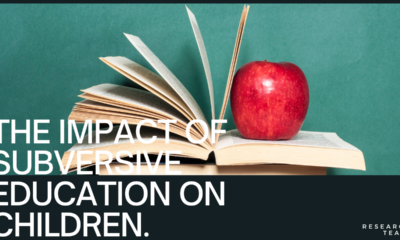
 Civilization4 days ago
Civilization4 days agoCHAPTER 12: Seeding Race Wars
Space Is No Longer the Final Frontier—Reality Is [forthcoming release May 2024] -

 Education4 days ago
Education4 days agoTitle IX revision sparks State revolts
-

 Constitution3 days ago
Constitution3 days agoPrecinct Strategy scores again
-
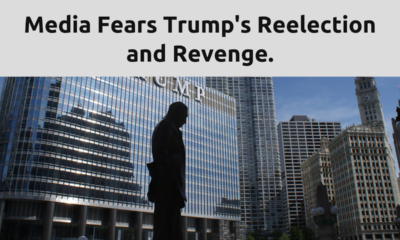
 Civilization2 days ago
Civilization2 days agoLegacy media already assume Trump wins
-

 Education5 days ago
Education5 days agoDid the Freemasons, Illuminati, Spiritualists and Mystics establish this country?
-

 Education3 days ago
Education3 days agoThe Road Back to Normalcy Starts Where the Problem Began: College Campuses
-

 Civilization2 days ago
Civilization2 days agoSCOTUS Is Last Bulwark Against Critical Legal Studies
-
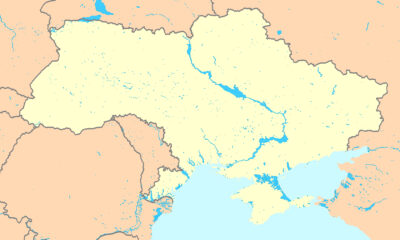
 Civilization2 days ago
Civilization2 days agoWhat 10 Years of U.S. Meddling in Ukraine Have Wrought (Spoiler Alert: Not Democracy)





